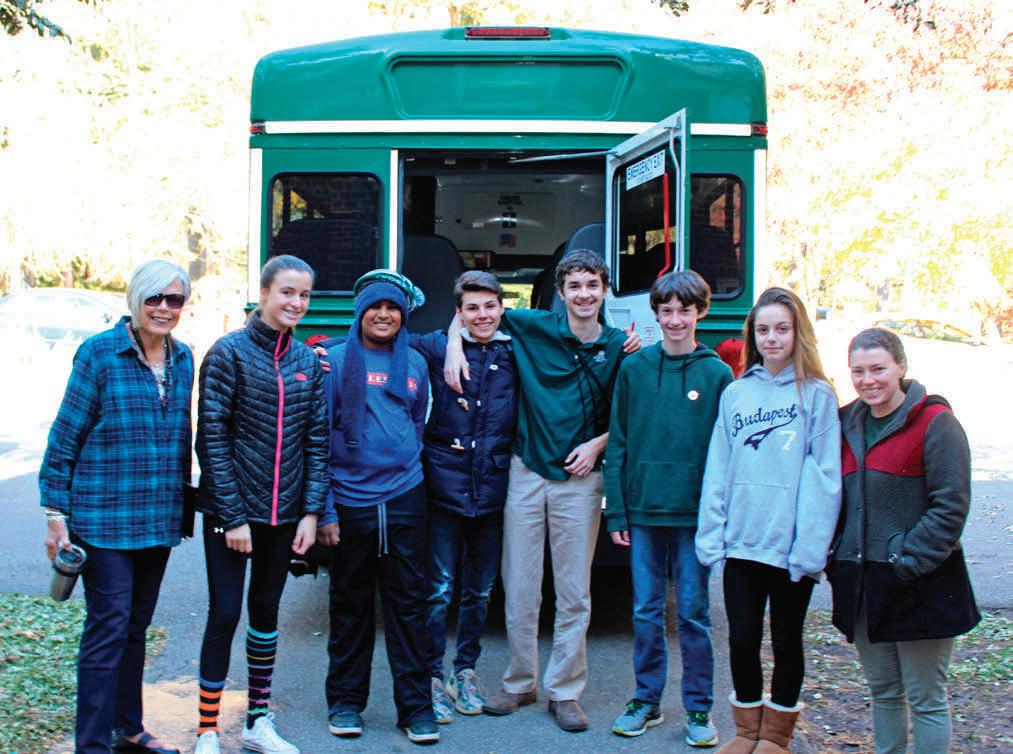

UPPER SCHOOL
Academic rigor, intellectual engagement, character development and the ability to work with others are core values in Harbor Country Day School’s upper school. We know that every child has a unique learning style and the relationships that develop between each child and his or her teacher are critical in inspiring students to become independent, self-aware, and joyful members of our school community. We believe that every interaction between teachers and students contributes to creating a school environment in which students can feel comfortable taking risks, asking questions, and challenging themselves to go further than they ever thought possible. Upper school courses build foundational skills as well as foster curiosity through inquiry-based learning and STEAM-based projects. In the upper school, we strive to create an environment that is engaging, challenging, and enriching, while providing the support needed whenever necessary. We offer math and writing labs daily through our exploratory program. Our social and emotional learning goals are interwoven throughout the culture of the school, most significantly through our advisory program. In challenging students to reach beyond their expectations, we encourage them to stretch themselves and achieve as excellent writers, readers, mathematicians, athletes, artists, and musicians. The goal of the upper school program is to instill confidence and prepare students for high school and beyond.


ENGLISH
The primary goal of Harbor’s English program is the development of students who are strong readers, writers, and speakers, and who have an appreciation, if not a love, for literature. With a wide selection of books and resources, we examine and explore non-fiction, novel, short story fiction, informational text, and poetry. Vocabulary and grammar are practiced in context, but it is only through frequent writing exercises and re-writing that the art, craft, and skill of writing are realized. By learning how to express their opinions using supportive textual evidence, students become confident writers and public speakers. Listening, sharing, brainstorming, and respecting various and contrasting points of view are significant communication skills on which we focus our attention. By investigating literature through creative teaching methodologies, teachers address each child’s needs. We strive to graduate students from Harbor with the strongest possible foundation in English, and as confident and creative writers, readers, thinkers, and problem solvers.


Beginning in grade six and continuing through grade
eight, students will focus on developing important reading, writing, listening, and speaking skills, including:
The ability to read texts closely to make logical inferences
Citing textual evidence to support conclusions drawn from the texts
Identifying central ideas or themes and analyzing their development
Determining technical, connotative, and figurative language and analyzing how specific word choices shape meaning or tone
Analyzing the structure of texts
Assessing how point of view or purpose shapes the content and style of a text
Employing knowledge of literary language and textual features to read, comprehend, reflect upon, and interpret texts from a variety of genres and cultures
Write formal arguments by supporting claims using textual evidence and acknowledging counterclaims respectfully
Produce clear and coherent writing with appropriate development, organization, style, and structure
Practice planning, revising, editing, and rewriting written assignments
Prepare for and participate effectively in a range of conversations and collaborations
Present information, findings, and supporting evidence confidently and respectfully

ENGLISH





6th Grade
Through the reading of novels, short stories, articles, and excerpts, students will learn how to discuss themes, literary elements, significance of setting, and author’s craft. Text annotation, close reading, and the formal argument are introduced. Novels read throughout the year may include:
Inside Out and Back Again by Thanhha Lai
Short Story Collection by O.Henry
Seedfolks by Paul Fleischman
Animal Farm by George Orwell
The Westing Game by Ellen Raskin

7th Grade
Through the reading of novels, short stories, articles, and excerpts, students will continue to discuss themes, literary elements, significance of setting, and author’s craft. Text annotation, close reading and the formal argument will be introduced and practiced. Novels read throughout the year may include:
12 Angry Men by Reginald Rose
My Brother Sam is Dead by James Lincoln Collier and Chris Collier
The Giver by Lois Lowry
The Children’s Story by James Clavell
Romeo and Juliet by William Shakespeare
The Outsiders by S.E. Hinton
Lord of the Flies by William Golding
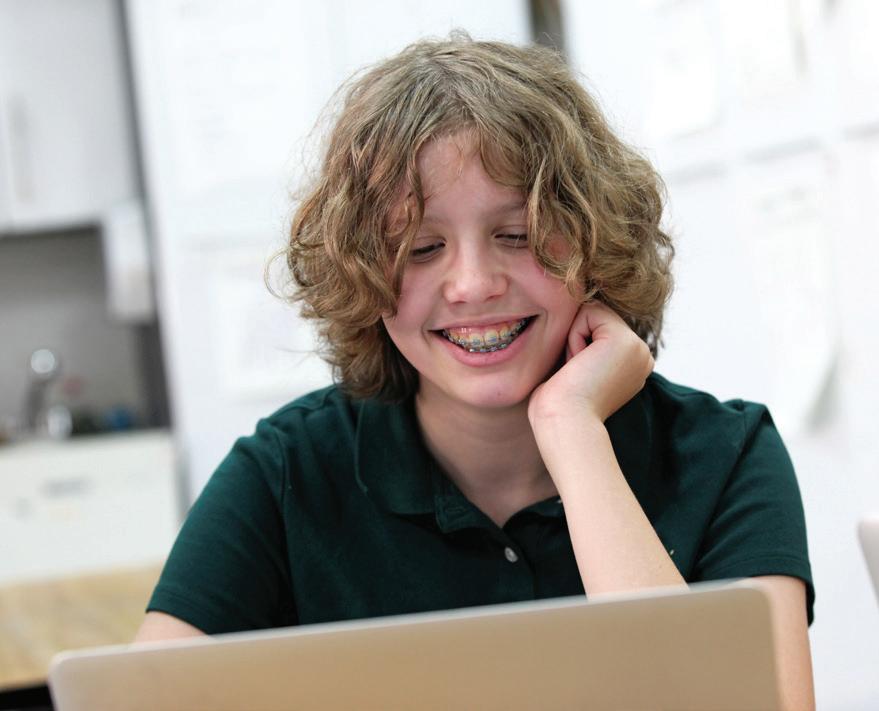
8th Grade
Students will learn to analyze the influence of literature on social and political change. They will continue to discuss theme, literary elements, significance of setting, and author’s craft. During this year students will continue to focus on composing a formal argument using a variety of texts. Novels read throughout the year may include:
Rules of the Game/Two Kinds by Amy Tan
Flowers for Algernon by Daniel Keyes
Hamlet by William Shakespeare
Uncle Tom’s Cabin Excerpts by Harriet Beecher Stowe
The Odyssey Excerpts by Homer
How the Other Half Lives by Jacob Riis
The Jungle Excerpts by Upton Sinclair
The study of global language in the upper school is where students begin to focus on the use of a language other than English as a form of communication. Students may choose between Spanish or Mandarin in the fifth grade and will continue through eighth grade. Listening, speaking, writing, and reading are the core skills around which each language is taught. Students begin the formal study of grammar, vocabulary, and culture during their first year in the upper school. Students not only develop the ability to communicate in a language other than English, they also develop an understanding and appreciation of the culture of their chosen language. The department leads the school in our annual multicultural celebration where world cultures come to life through song, public speaking, art, and music. Through hands-on projects and formal study, students graduate Harbor with a solid foundation to move into high school level languages.
LANGUAGES MANDARIN

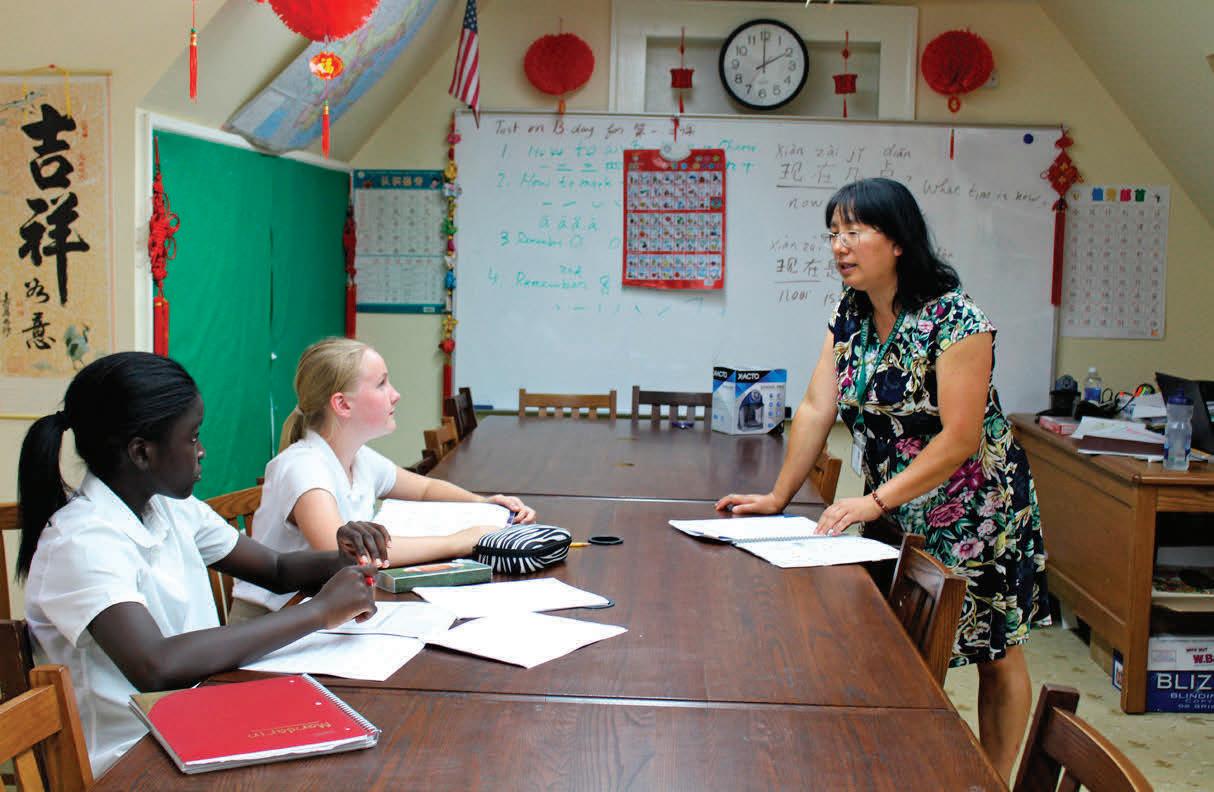
Grades 6–8
Students are introduced to the formal study of grammar and vocabulary. Students will explore the culture of the language through a variety of projects and hands-on assignments. Students participate in our multicultural day performances. With the recommendation of the teacher, some sixth grade students will take the Chinese language proficiency exam, HSK. The HSK exam is an international standardized exam which tests and rates Chinese language proficiency and abilities for non-native Chinese speakers. Topics studied include:
Common vocabulary terms and phrases
Conversational prompts
Grammar patterns
Pronunciation
Rhythms and tones
Character writing
Romanization
Chinese histor y
LANGUAGES

SPANISH
6th Grade
Students are introduced to the formal study of grammar and vocabulary. Students will explore the culture of the language through a variety of projects and hands-on assignments. Students complete a project that will be displayed during Hispanic Heritage Month and participate in our multicultural day performances. Topics studied include:
Greetings and courtesy expressions
Clothing, weather, months, and days
Time and colors
Geography of Mexico and Spain
Food
Definite and indefinite articles
Regular present tense verbs

7th Grade
Students will continue their formal study of grammar and vocabulary. Students will explore the culture of the language through a variety of projects and hands-on assignments. Students complete a project that will be displayed during Hispanic Heritage Month and participate in our multicultural day performances. Topics studied include:
Present tense AR ending verbs
School subjects
Shopping for clothes and school materials
Adjectives: describing people and things
The verb ser and estar
Present tense Er/Ir verbs
Comparing schools in the United States and Spanish-speaking countries
End-of-year holidays
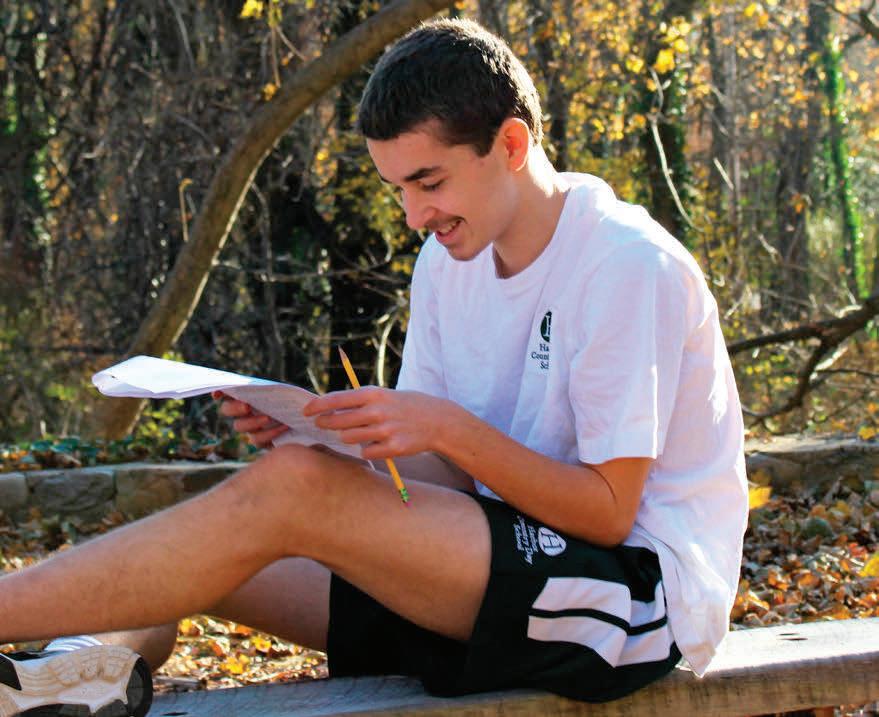
8th Grade
Students will continue to explore the culture of the language through a variety of projects and hands-on assignments. Students complete a project that will be displayed during Hispanic Heritage Month and participate in our multicultural day performances. Topics studied include:
Family and home
Sports
Possessive adjectives
Stem-changing verbs
Interests and preferences
Health and the doctor
Ordering food in a restaurant
Imperfect past tense
Past tense regular and irregular verbs
Present progressive tense
Reflexive verbs.
HEALTH
At Harbor our health classes play an important role, supplementing the growth of children and academic curriculum. Drawing from a variety of disciplines including social studies and science, students are given the tools to make informed decisions regarding their health and well-being. Our health classes provide a collaborative classroom environment while students explore current issues facing teenagers including mental, emotional, and physical health.
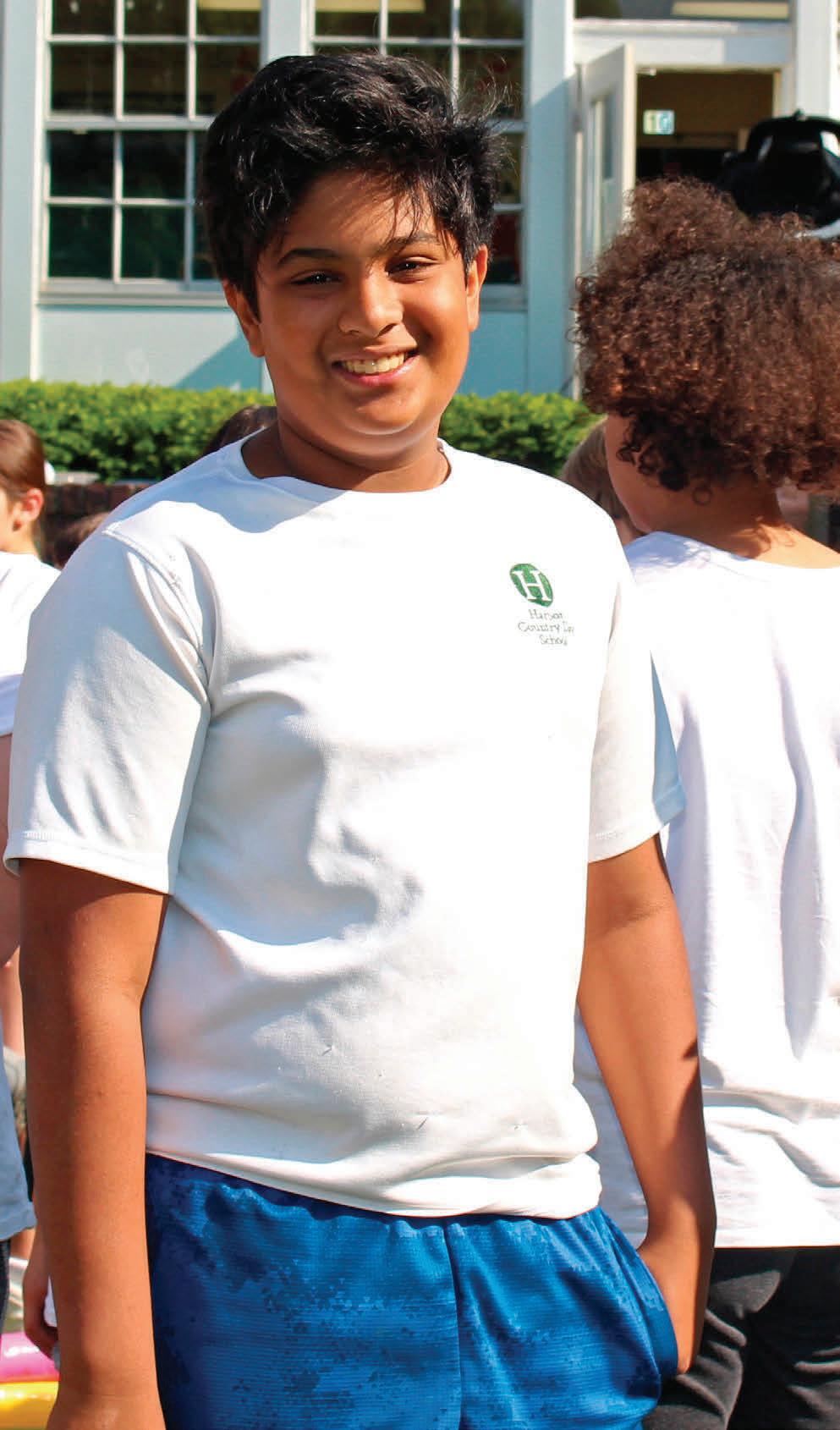


6th Grade
All body systems
Smoking and its effects on the body
Puberty
First aid
Stress, emotions, and peer pressure
7th Grade
Communication and active listening
Decision-making process
Goal-setting
Refusal skills
Nutrition
Stress and self awareness
Types of exercise
Peer pressure
8th Grade
Cyberbullying and the effects of social media
Refusal skills
Addiction
Drugs and their effect on the body
Alcohol and the effects on the body
Drinking and driving
Mental illness
SOCIAL STUDIES
Tradition and innovation intersect and merge in our social studies classes as students study societies from around the world. Beginning with the emergence of mankind and continuing through to contemporary times, our program allows students to develop opinions about the world in which we live and instills confidence so students are comfortable sharing their thoughts and ideas through debate and discussion. Our history curriculum is literacy-based and studentcentered. Through the use of primary and secondary source documents, inquiry, and investigation, students learn to think like historians. Students write expository and argumentative essays using diverse primary and secondary source materials. Inquiry-based and project-based lessons provide an enriching classroom experience. Throughout these courses we focus on making connections to current events, allowing students to understand and appreciate how history shapes our world.


Beginning in grade six and continuing through grade eight, students will focus on developing critical skills, including:
Note-taking style
Outlining and organizing information
Listening (short lectures)
Research using databases and academic sources
Ability to break down and analyze information
Ability to discern between fact and opinion
Citing textual evidence to support analysis
Citing sources using MLA format
Collaboration
Debate
Presenting work to peers
SOCIAL STUDIES

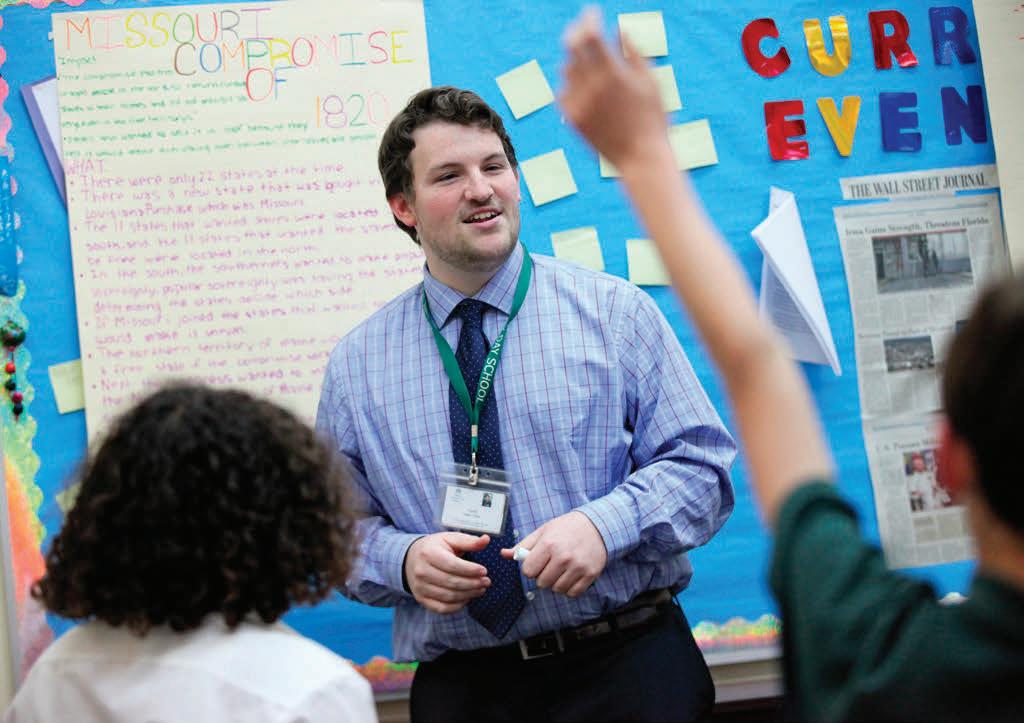

6th Grade
World Geography and Culture Part II: Western Civilization
Students will continue their study of world cultures in grade six. Students will explore the development of empires in Western Europe and the impact of cultural interactions throughout the region. Students will also explore the development of belief systems and the foundations of democracy. Finally, the global issues project allows students to research, analyze, and attempt to solve problems facing the world from the perspective of a global citizen. Topics studied include:
Geography of Western Europe and the Middle East
Greece
Rome
Comparative religions
Middle Ages
7th Grade
United States History and Geography I
Students in grade seven will focus on the history of the United States. Students will begin with studying the first human settlements in North America and Native American cultures and conclude the year analyzing the social, political, and economic divisions of pre-civil war America. A final research paper is the culmination of the course and serves as a final exam. Topics studied include:
Geography of North and South America
Native peoples of North and South America
Age of Exploration through Pre-Civil War era
8th Grade
United States History and Geography II
Students will continue their study of United States history, beginning with the social, political, and economic causes of the Civil War and concluding with postwar America. In eighth grade students are given the opportunity to explore contemporary issues facing the United States. A final research paper is the culmination of the course and serves as a final exam. Topics studies include:
Geography of North and South America
Civil War through the postwar America
MATH
The goal of the Harbor math program is to ensure students establish strong foundational skills as well as develop a confidence in their ability to think mathematically. Students gain confidence in their math abilities through a deliberate and thoughtful placement process and a supportive classroom experience. Teachers help students recognize the value in mathematical thinking and how it will aid them in a variety of disciplines, such as science, business, social sciences, fine arts, and technology. The essential skills of collaboration, critical thinking, and problem-solving are developed. A typical course progression would include Pre-Algebra, Algebra I (Regents-level), and Geometry (Regents-level). On rare occasions, when there is clear evidence, students are promoted toward higher levels of math. Eighth grade students graduate Harbor with at least one NYS math regents completed.
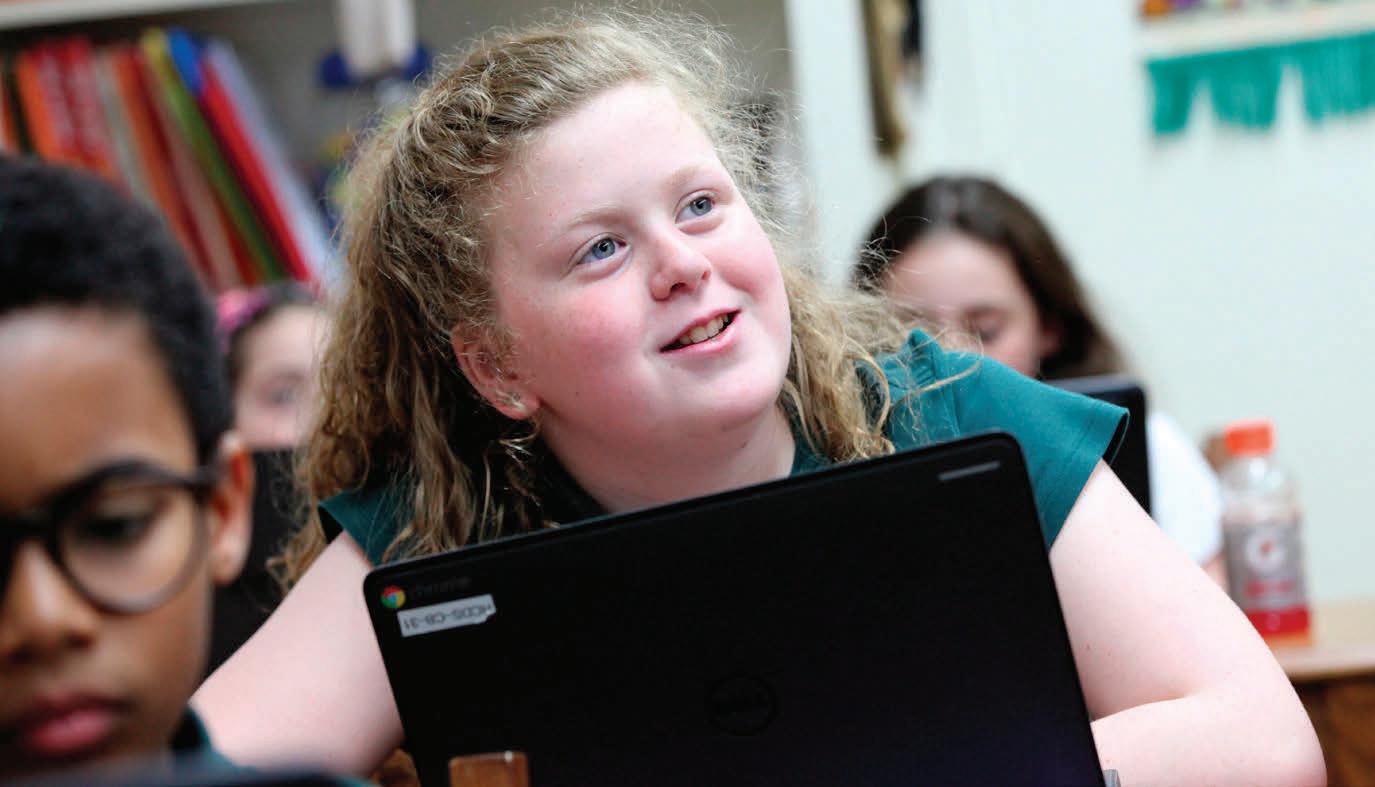

6th Grade
Students will continue to focus on foundational skills, preparing them for Pre-Algebra in seventh grade. Students will be introduced to algebra and geometry in this course. Topics studied include:
Ratios and rates
Fractions, decimals, and percents
Algebraic expressions
Equations
Functions, inequalities, and integers
Triangles and quadrilaterals
Perimeter, area, and volume
Surface area
Analyze data and graphs
Probability
MATH
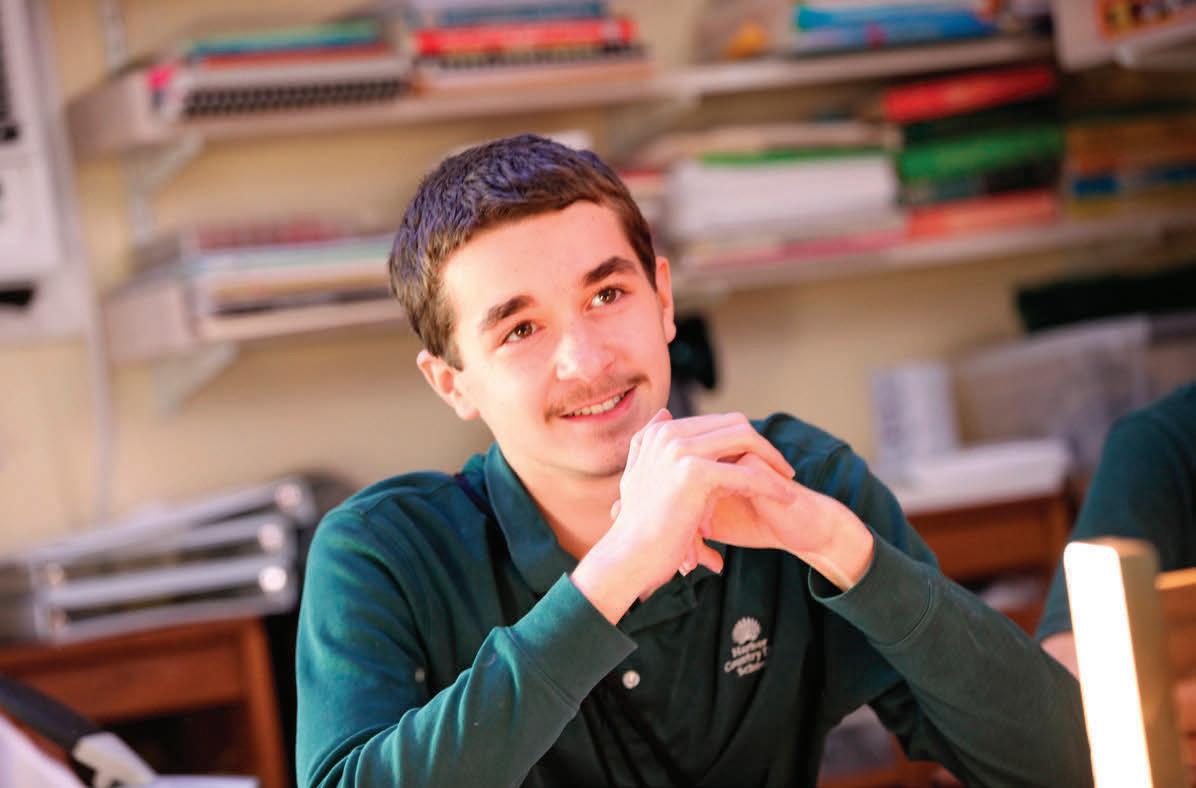

6th Grade
Pre-Algebra
Prerequisite: Teacher recommendation and placement exam in fifth grade.
This course will prepare students to enter Algebra I in seventh grade.
Topics studied include:
Tools for algebra (working with variables, scatter plots, ordered pairs)
Operations with integers
Operations with rational numbers
Expressions and equations
Multi-step equations and inequalities
Ratio, proportions, and similar figures
Percents
Real numbers and right triangles
Angles

7th Grade
Algebra I
Prerequisite: Pre-algebra in 6th or 7th grade. This course will prepare students to take the New York State Regents Exam upon the completion of coursework.
Topics studied include:
Equations
Inequalities
Functions
Linear functions
System of equations and inequalities
Exponents and polynomials
Factoring polynomials
Quadratic functions and equations
Exponential functions
Data analysis and probability
8th Grade
Geometry
Prerequisite: A grade of 85 or better on the New York State Regents Exam and/or teacher approval. This course will prepare students to take the New York State Regents exam upon the completion of the coursework. Topics studied include:
Foundations for geometry
Geometric reasoning
Parallel and perpendicular lines
Polygons and quadrilaterals
Similarity
Right triangles and trigonometry
Transformational geometry
Spatial reasoning
Probability
SCIENCE
The life, physical, and earth sciences, studied in a lab-based setting, are the three areas of focus in our upper school science program. The goal of our science program is to promote the important role science plays in our world and foster a positive attitude toward the study of science. Our science teachers help students develop the skills needed to succeed in rigorous high school science programs and beyond. We unite theory with practical applications through field trips to natural outdoor settings on our nearby coastline and Long Island’s regional science centers. The scientific process forms the backbone for our laboratory work, and lab reports are the culmination of the students’ research and hands-on studies. Basic academic skills, such as note-taking, proper lab report writing, discussion, and collaboration, are reinforced throughout the year. Students will graduate with one NYS science credit completed after taking the Earth Science Regents.
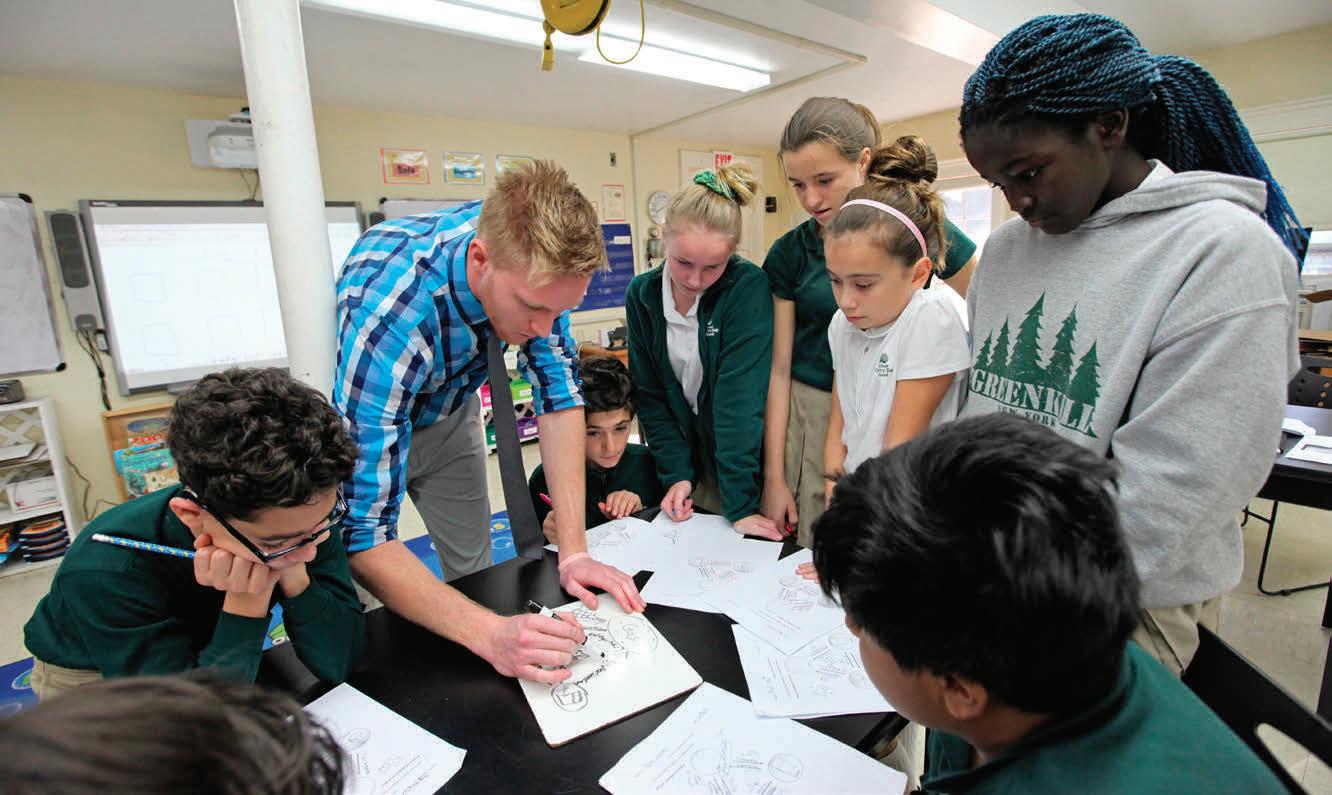
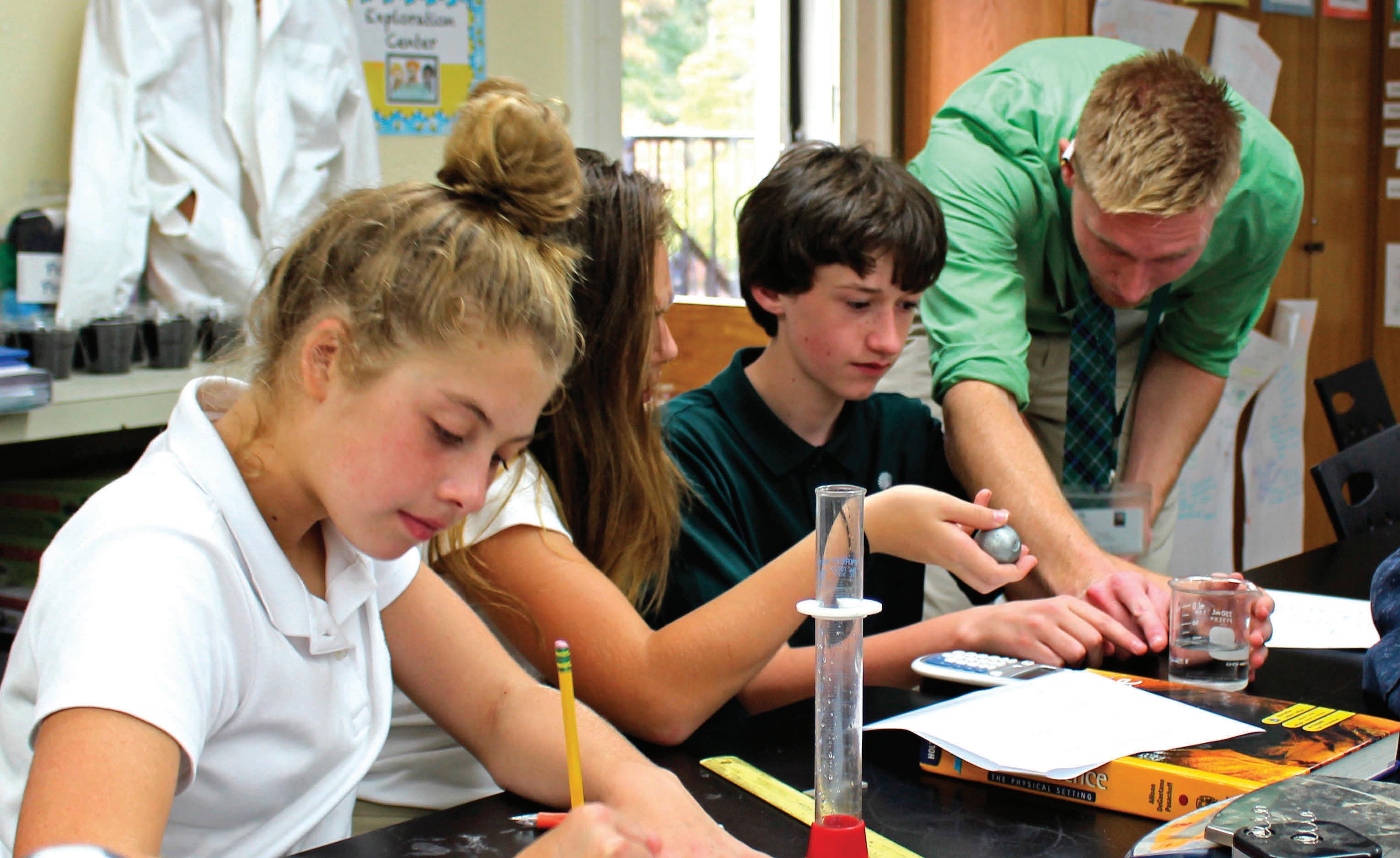
6th Grade Life Science
Through scientific inquiry and the application of scientific concepts, principles, and theories, students will pose questions, seek answers, and find solutions pertaining to the living environment. Students will learn how to make informed decisions using the thinking skills of math, science, and technology and complete in-depth laboratories for each topic studied during the school year. Topics studied include:
Cellular processes
Genetics
Viruses and bacteria
Protists and fungi
Introduction to plants/seedless plants
Fishes, amphibians, and reptiles
Birds and mammals
SCIENCE
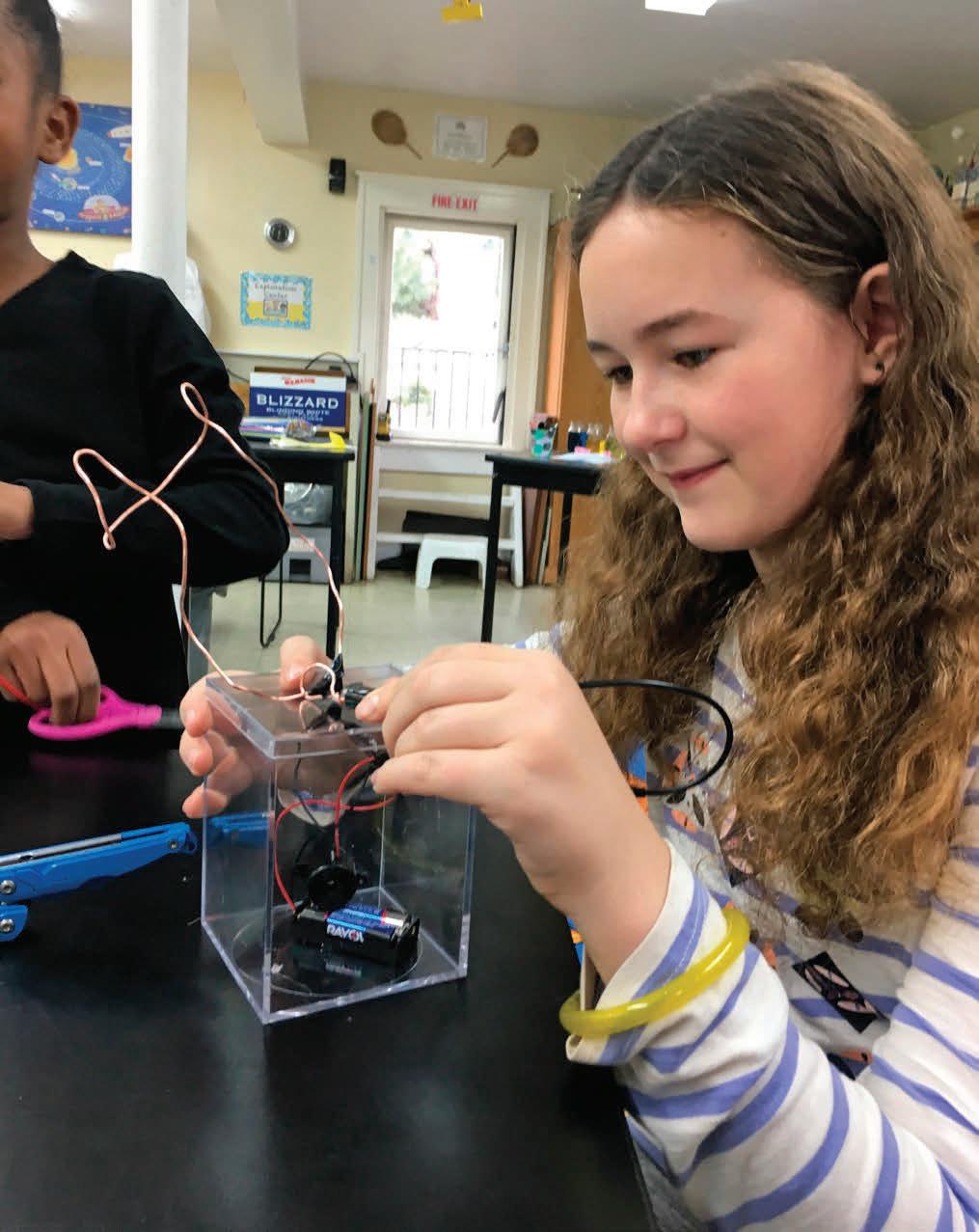
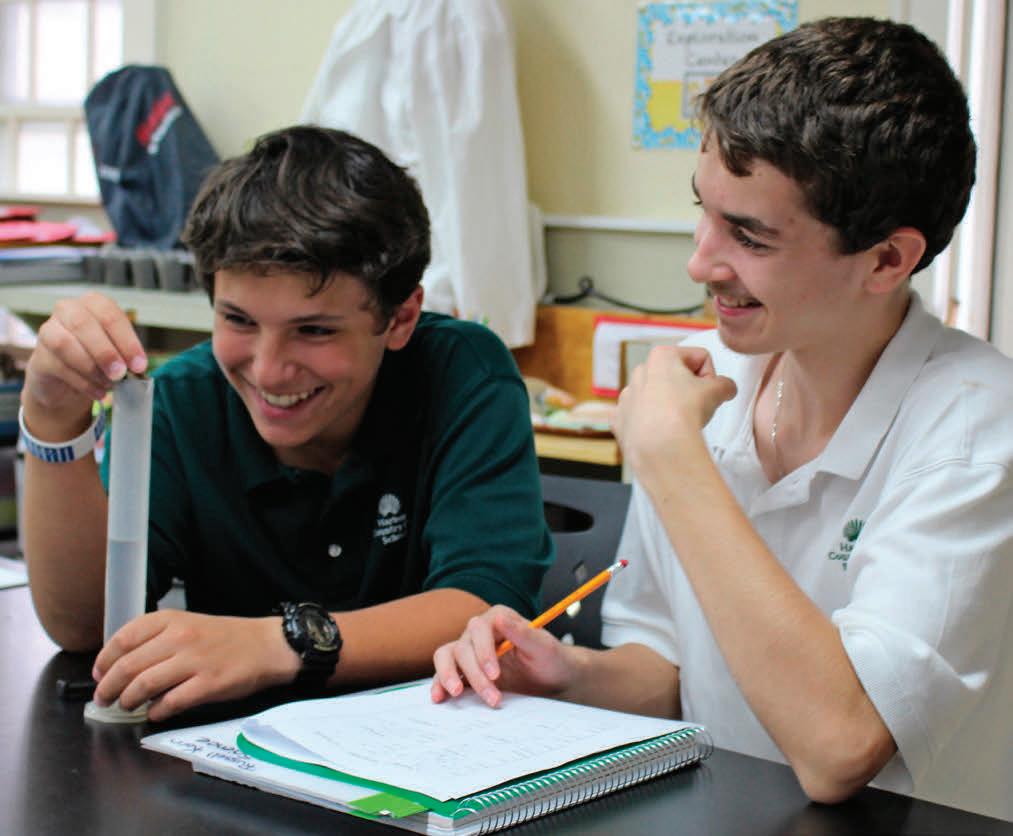

7th Grade
Physical Science
Through mathematical analysis, scientific inquiry, and the application of scientific concepts, principles, and theories, students will pose questions, seek answers, and find solutions pertaining to the physical environment. This course dedicates half of the school year to chemistry and the other half to physics. Students will learn how to make informed decisions using the thinking skills of math, science, and technology and begin implementing introductory engineering skills. Students will also complete in-depth laboratories for each topic introduced during the school year. Topics studied include:
Matter
Atoms and bonding
Motion
Water Bottle Rocket Project
Waves
Electromagnetic spectrum
Electricity (time permitting)
8th Grade Earth Science
The focus of this course is the inorganic constitution of the earth and its atmosphere. The areas of geology, oceanography, and meteorology are explored through mathematical analysis, scientific inquiry, and the application of scientific concepts, principles, and theories. Students will pose questions, seek answers, and find solutions pertaining to the Earth’s processes. Students will learn how to make informed decisions using the thinking skills of math, science, and technology. This course requires students to complete 1200 laboratory minutes (14 labs minimum). Students will take the Earth Science Regents Exam upon the successful completion of the required coursework and labs as well as a teacher recommendation. Topics studied include:
Mapping
Rocks and minerals
Dynamic Earth
Geologic time
Meteorology
Astronomy
Climate and landscapes

TECHNOLOGY
Building on the lessons of lower school, students continue their technology education in the upper school. Our STEAM-based curriculum draws from a variety of disciplines to create a program that incorporates concepts and projects based in design, computers and electronics, manufacturing, and transportation. Utilizing teachers from art and science, as well as technology, our technology curriculum is a true collaboration of departments. Within technology, coding and robotics are cornerstones of the upper school program. Coding helps students develop a way of thinking that aids in all forms of problem solving, expanding through all academic subjects. Coding allows students to break down information and figure out, piece by piece, how to solve complex problems and find solutions. Like any language, practice is the key to success. Students meet twice in a schedule rotation for technology and are given opportunities throughout the week to practice coding and work on robotics. Students are introduced to basic programing languages in the lower school and continue to explore more advanced coding languages like Python and Javascript throughout upper school. Units using Micro:bits and 3D printing are also part of the upper school program. Lego Mindstorms EV3 robots are used for a variety of robotic projects. Harbor’s technology courses teach concepts using the design thinking philosophy: observe, focus, design, create, share.



Some projects may include:
Design and drawing
Marble Maze
Catapult
Egg Drop
Soda Bottle Rockets
Coding
3D printing
Upper School Robotics Team:
FIRST Lego League
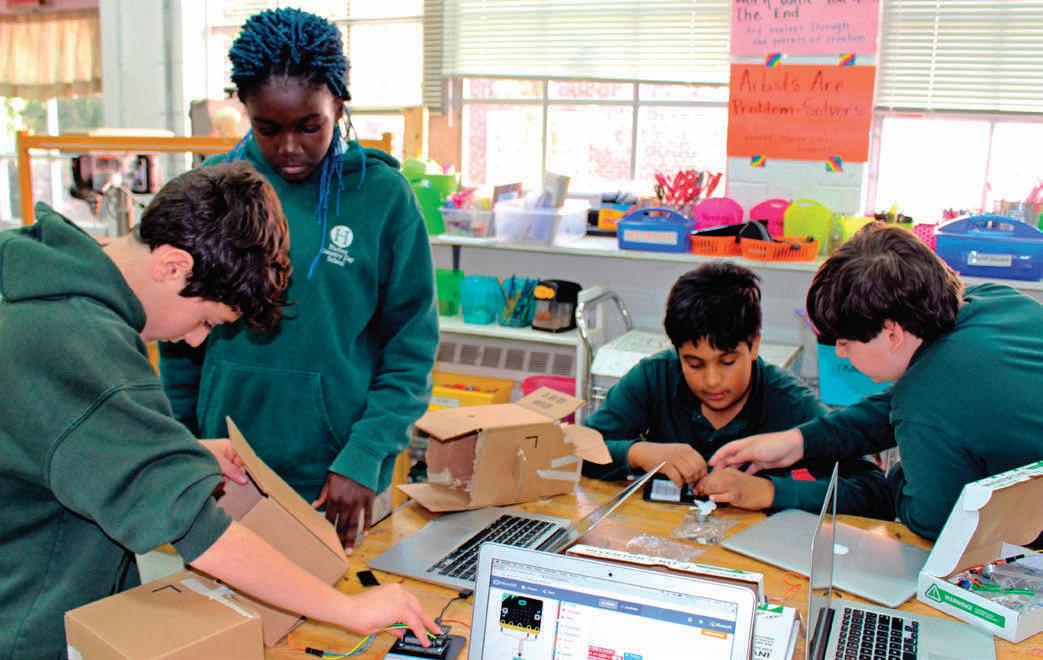
MUSIC
Music history, music theory, chorus, and band compose the four elements to our upper school music program. Through listening, musical “exercises,” and discussion in our music classes, students learn about the history and theory of music. All upper school students join the chorus for two periods a week. There they not only learn a repertoire of songs to be performed, but also become part of a musical community and learn about their vocal “instrument.” Band begins in fourth grade and continues as an upper school elective for students who choose to play a brass, woodwind, or percussion instrument. Group lessons by instrument section are scheduled once a week.
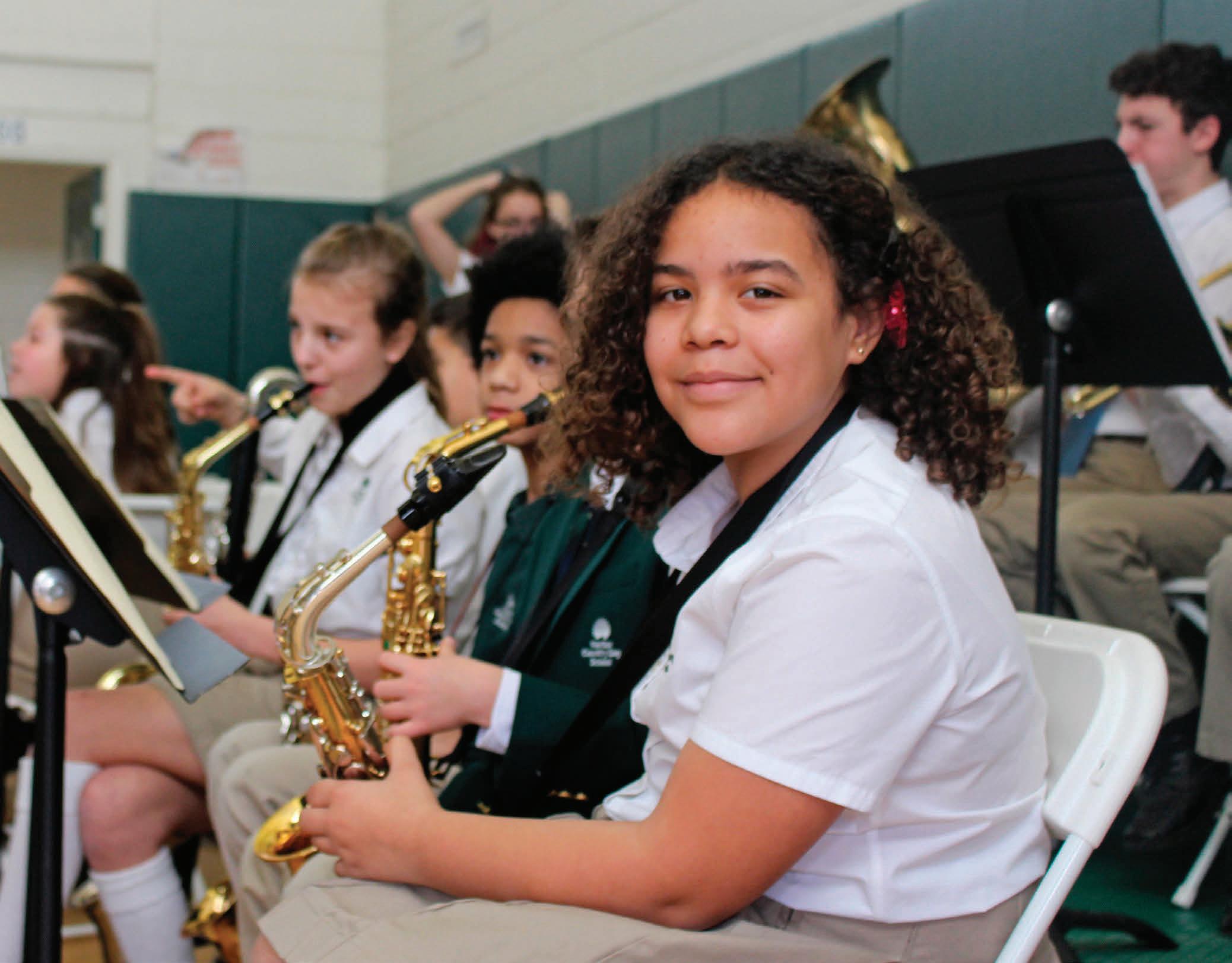
Grades 6–8 (applicable to all listed below)
Music Theory
Study includes the elements of music:
Pitch Melody
Rhythm Harmony
Notation
Sound
Music History
This course is co-taught with the history teacher and follows the history curriculum. Includes topics such as:
Ancient Greek music
Ancient Roman music
World music
Colonial music
Music of the Civil War
Music of the Romantic Era
Music during the civil rights movement
Chorus
All students participate
Meets twice a week
Students perform in two concerts per year
Band (elective)
Meets twice a week
One lesson per rotation
Students perform in two concerts per year
STUDIO ART
The Harbor Country Day School studio art program is designed to help students grow in knowledge, perception, and appreciation for the arts. We help them grow in these areas by exposing them to the theory and practice of art. Experimenting with new materials, exploring new ways of creating, and discovering new ideas are just as important as the history behind why we are able to create art today. The study of art history is an integral component to the curriculum, becoming the springboard for many projects. Connections are always made to classroom studies, helping the students recognize how learning in all areas are related. Students become well-versed in expressing their creative thoughts through the study of art studio vocabulary and group critiques. Students share their strengths/weaknesses and failure/success while discussing their work and the work of others. A safe and open environment is fostered by never giving up, keeping an open mind, learning from our mistakes, never judging our work until we’re done, and knowing that artists are problem-solvers.


Grades 6–8
(applicable to all listed below)
Theories/practices explored include:
Elements of art
Principles of design
Printmaking
Clay
Drawing
Painting
Illustration
Organic/geometric shapes
Emotion/expression through creating
Group critiques
Color theor y
Art history
Collage
Collaboration
Cultural exploration
PHYSICAL EDUCATION/ATHLETICS
The goal of our physical education and athletics program is to focus on the process and teaching of sportsmanship, fair play, leadership, teamwork, strategies, problem solving, and developing an appreciation for lifelong physical fitness, nutrition, and health. Through a supportive and non-judgmental environment and teaching methodologies, students learn concepts that apply to the body and its relationship to space, movement, and effort. Students learn skills to improve performance, set personal goals, and participate in programs to achieve those goals. Harbor’s physical education teachers help students recognize the
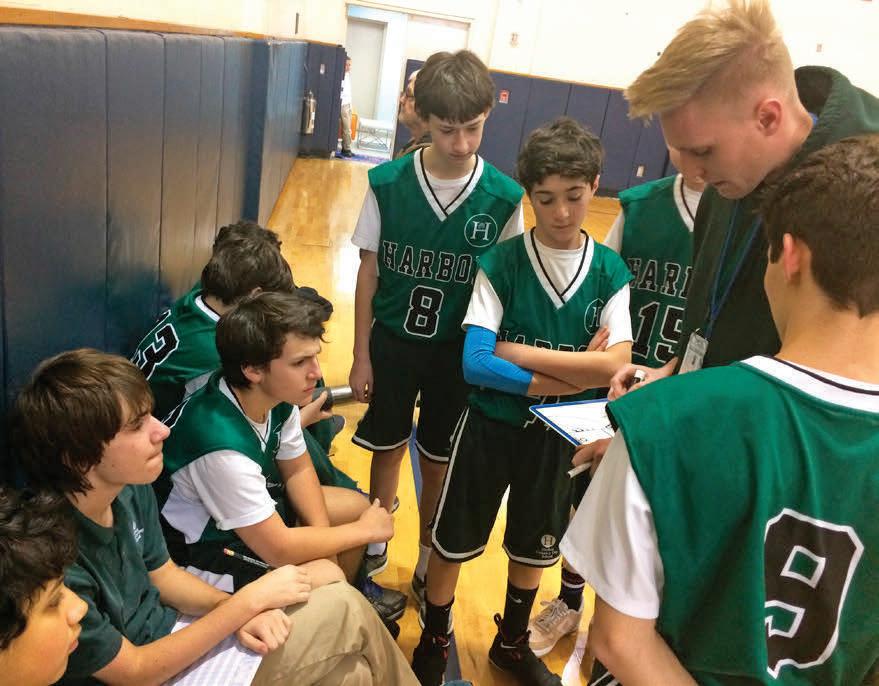
long-term effects of regular physical activity. Grades six through eight meet five days of the seven-day rotating schedule. During the sports season (soccer in the fall and basketball in the winter), P.E. time is used for sports practice. Harbor participates in the Long Island Independent School Athletic League, with games each week during the sports season. Game participation is mandatory for all upper school students. In between seasons and in the spring, teachers focus on foundational physical education skills. Each year culminates with upper school students helping to plan and run field day for the lower school.

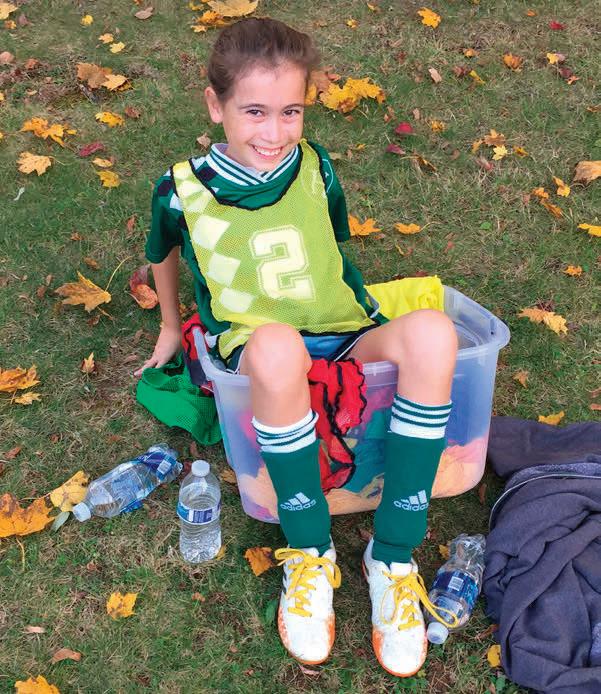
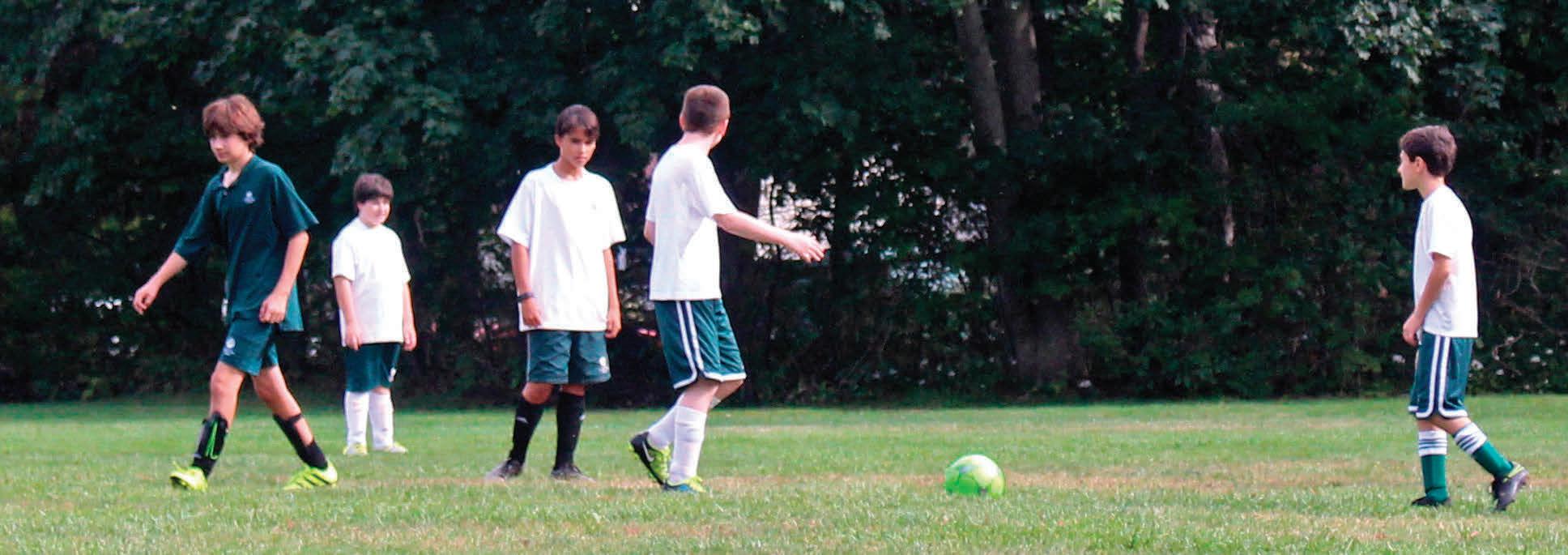
6th Grade
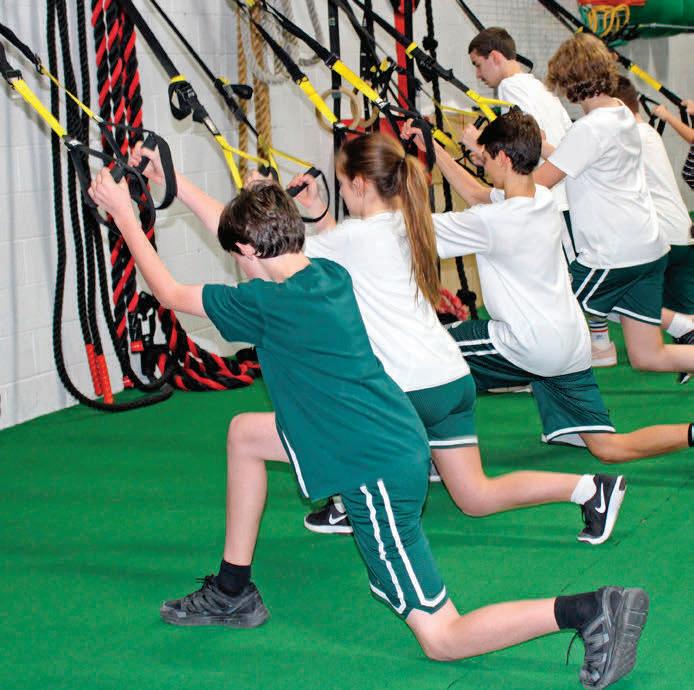
7th–8th Grades
ENRICHMENT
These programs are designed to promote the intellectual, social, and emotional health of our students, helping them grow as confident learners and leaders.




Student Council
Each year, two to four student representatives from grades six, seven, and eight are elected to the Harbor upper school student council. The student council runs various social events throughout the year, including our popular canteen nights. Some recents changes proposed and approved by the student council include updates to the uniform code and Friday spirit days. Student council also organizes many community service events, from contributing goods to local food shelters to collecting holiday gifts for Toys for Tots. Giving back and helping others is an essential part of our student council experience.
Exploratory
The Harbor exploratory program provides students with the opportunity to explore their interests through a variety of electives offered throughout the year. Students may sign up for these classes daily or weekly, depending on the commitment required. Exploratory is offered four times per week. Extra help and academic enrichment is always offered during exploratory. Some other offerings include:
Mock trials
Current events
MakerSpace
GarageBand
Creative writing
Yearbook
Math olympiads
Sports drills
Physical fitness
Chess
ENRICHMENT
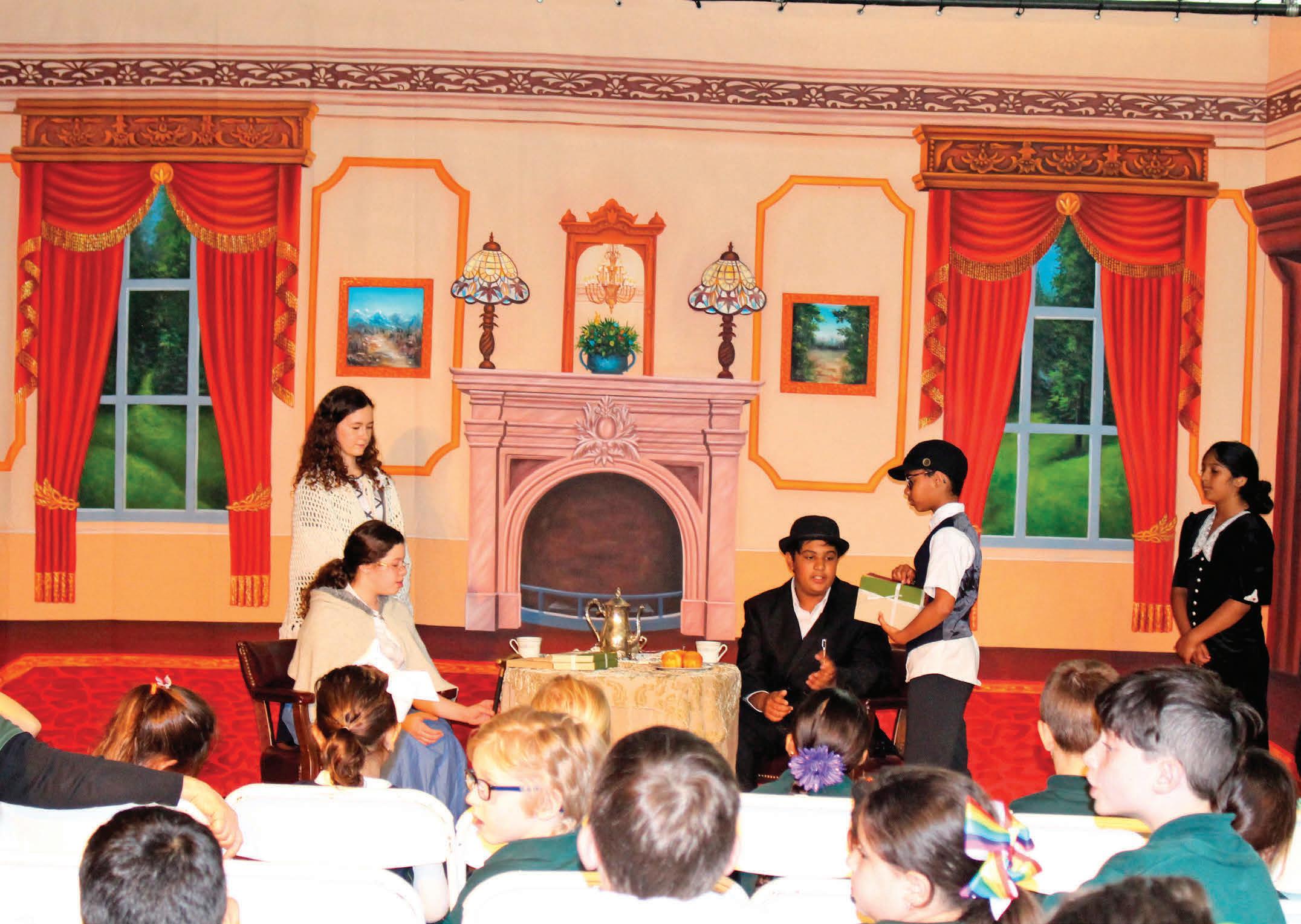
School Musical
All fifth through eighth grade students are invited to participate in the annual musical production at Harbor. Whether they desire to be the star of the show or work behind the scenes on set design, costumes, or stage crew, there is a place for everyone in the upper school musical. Through dedication and commitment, students learn the value of working in an ensemble and gain confidence in their abilities.
Robotics Team
Harbor’s fifth through eighth grade students have the opportunity to participate in our FIRST Lego Robotics team. Students will compete with other Long Island teams working on programming challenges. Our team is closely advised by faculty at Harbor and from Stony Brook University.
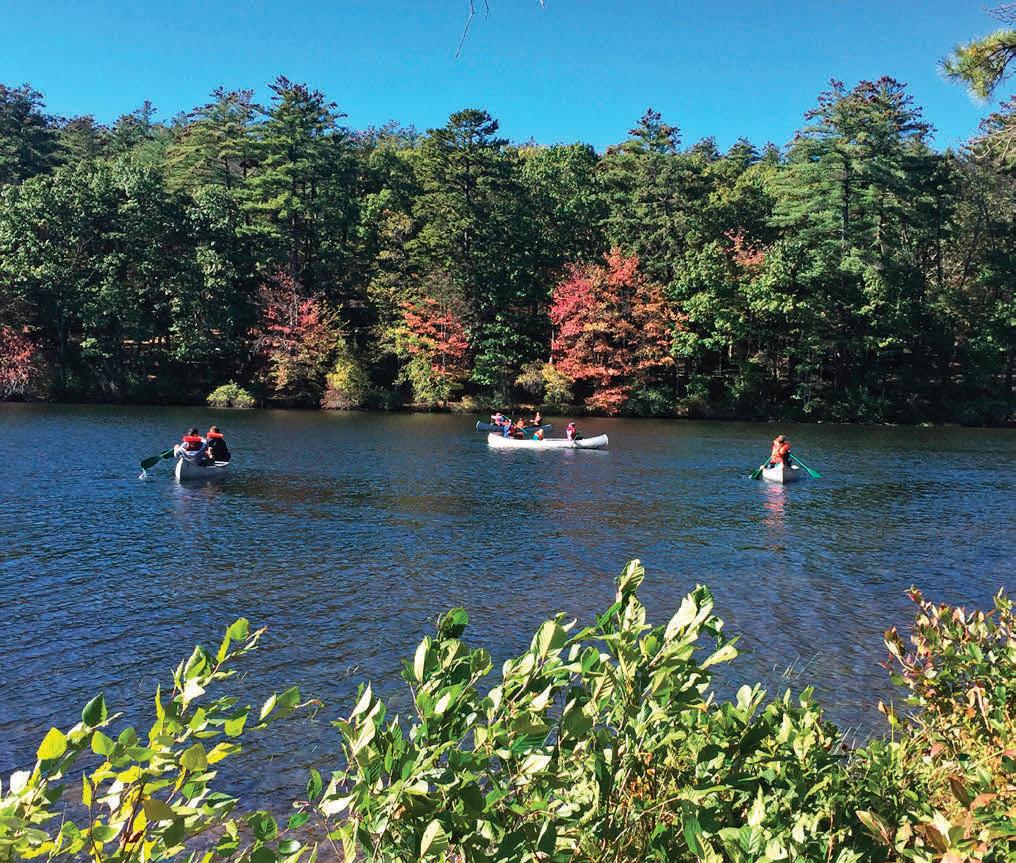
Interactive Learning Experiences
Annual History Trip: Each year students visit a historic location for a three-day experience. Past trips include Washington, D.C.; Boston; Gettysburg, PA; and Philadelphia
A Day in the Life of the Nissequogue River research trip: Students spend the day analyzing samples and collecting data for the Central Pine Barrens Commission, Brookhaven National Laboratory, and the New York Department of Environmental Conservation Greenkill/Frost Valley: A three-day, two-night team-building trip that is designed for the particular needs of upper school students
NYC Trips: Past trips include The Hamilton Grange–Alexander Hamilton House, the National Museum of Mathematics, the Metropolitan Museum of Art, and the Tenement Museum
SOCIAL AND EMOTIONAL LEARNING (SEL)
Helping students cultivate positive relationships, feel and show empathy, and manage emotions are the SEL goals of the upper school. These goals are realized through our advisory program.
Advisory
Upper school students participate in a unique advisory program designed to support and guide them through their years at Harbor. Every upper school student has a faculty advocate and a group of four to six students with whom to connect. This small group dynamic allows for improved communication between Harbor and home through ongoing discussions between the advisor and parents. Advisors are aware of their advisees’ academic, social, and emotional wellbeing at all times and serve as the “first line of communications” between Harbor and home. In grade six, students are assigned an advisor who will stay with them through the year. In grades seven and eight, students may choose from available advisors. This opportunity for input into their own paths further empowers the students to grow as leaders of both their advisory groups and the school as a whole. Advisors meet with their advisees every morning before school and once a week during a weekly advisory period. The advisors come together at the beginning of the school year and plan lessons and activities based on the needs of the incoming group of students. Subjects for study in advisory include mindfulness, character-building, leadership skills, educational skills, and respect for differences.
Service Learning
This program provides students with an opportunity to develop real-world skills by researching and advocating for a cause. Students use their personal interests to research organizations that deliver services to the community. They can become involved in the cause directly or indirectly, by raising awareness in the school community or making connections in the community and working for the cause. Past projects include:
Working with a local wildlife rehabilitation center and organizing an assembly
Researching ways to make affordable water filtration systems for villages in Madagascar and organizing a fundraiser to aid the efforts of scientists working in Madagascar
Working with Smithtown Food Pantry, bringing awareness to our school community about local hunger issues
Working with hurricane victims in Texas and organizing a gift card fundraiser for clothing, food, and home repair services
Social and Emotional Learning (SEL)

